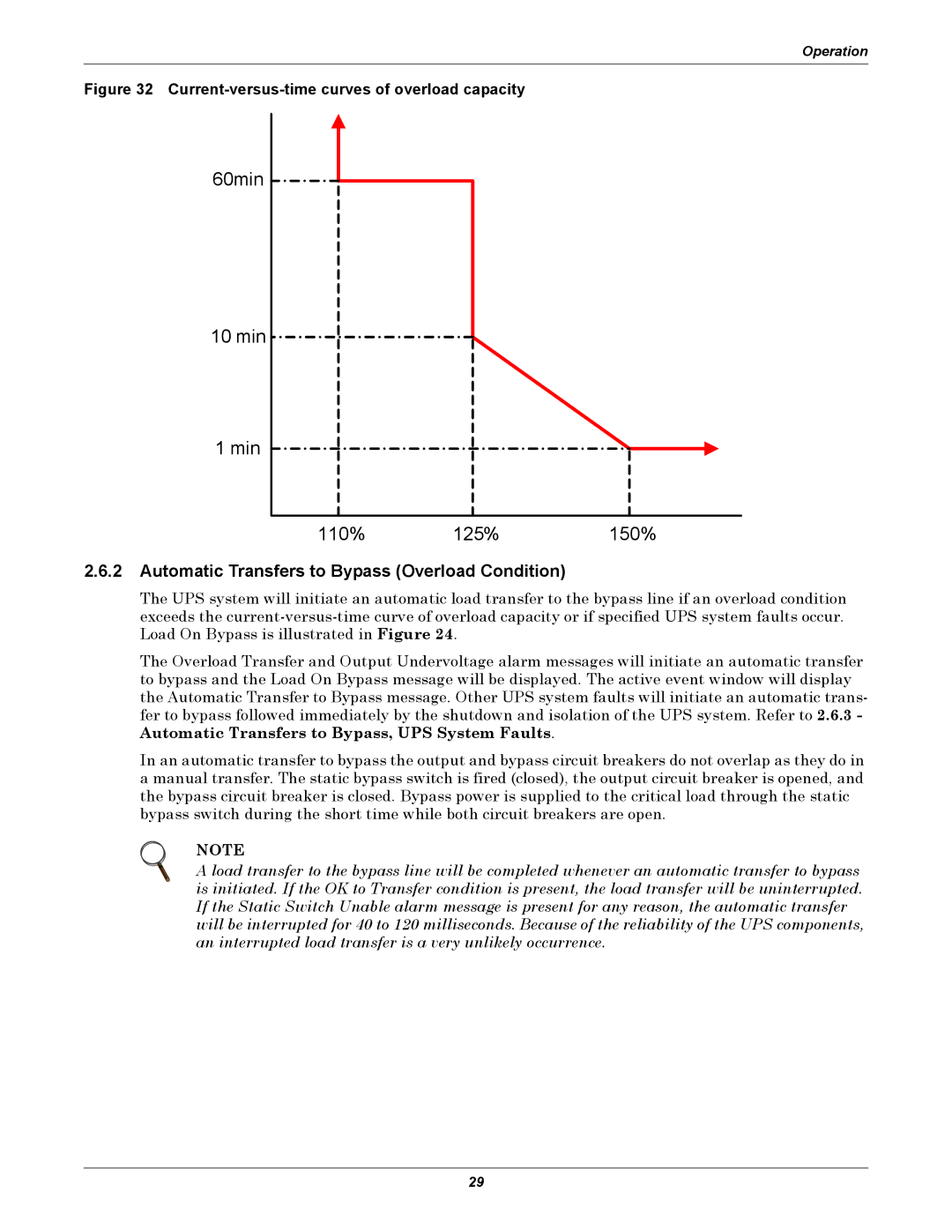
Operation
Figure 32 Current-versus-time curves of overload capacity
60min |
|
|
10 min |
|
|
1 min |
|
|
110% | 125% | 150% |
2.6.2Automatic Transfers to Bypass (Overload Condition)
The UPS system will initiate an automatic load transfer to the bypass line if an overload condition exceeds the
The Overload Transfer and Output Undervoltage alarm messages will initiate an automatic transfer to bypass and the Load On Bypass message will be displayed. The active event window will display the Automatic Transfer to Bypass message. Other UPS system faults will initiate an automatic trans- fer to bypass followed immediately by the shutdown and isolation of the UPS system. Refer to 2.6.3 - Automatic Transfers to Bypass, UPS System Faults.
In an automatic transfer to bypass the output and bypass circuit breakers do not overlap as they do in a manual transfer. The static bypass switch is fired (closed), the output circuit breaker is opened, and the bypass circuit breaker is closed. Bypass power is supplied to the critical load through the static bypass switch during the short time while both circuit breakers are open.
NOTE
A load transfer to the bypass line will be completed whenever an automatic transfer to bypass is initiated. If the OK to Transfer condition is present, the load transfer will be uninterrupted. If the Static Switch Unable alarm message is present for any reason, the automatic transfer will be interrupted for 40 to 120 milliseconds. Because of the reliability of the UPS components, an interrupted load transfer is a very unlikely occurrence.
29
